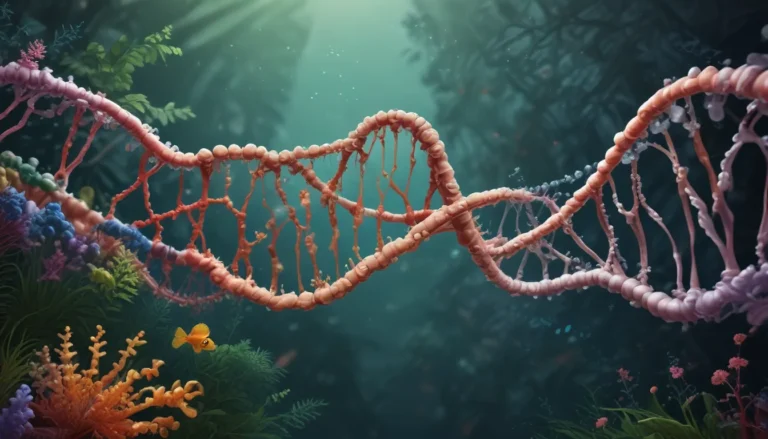A Note About Images: The images used in our articles are for illustration purposes only and may not exactly match the content. They are meant to engage readers, but the text should be relied upon for accurate information.
The concept of effective nuclear charge is a fundamental aspect of chemistry that plays a crucial role in understanding the behavior of atoms and their interactions. Effective nuclear charge, also known as Zeff, refers to the net positive charge experienced by an electron in an atom’s outer shell. In this article, we will delve into 11 captivating facts about effective nuclear charge that shed light on its significance in chemical reactions and properties of elements. From its impact on atomic size to its influence on ionization energy and electron affinity, effective nuclear charge is a fascinating concept central to our understanding of chemistry.
The Significance of Effective Nuclear Charge
Effective Nuclear Charge (ENC) is a key determinant of an atom’s size, the tightness with which its electrons are held, ionization energy, and chemical reactivity. As you navigate across the periodic table, the effective nuclear charge generally increases, influencing various atomic properties such as size, ionization energy, electron affinity, and reactivity.
Understanding Effective Nuclear Charge
Effective Nuclear Charge (ENC) refers to the attraction exerted by the positively charged nucleus on the valence electrons in an atom. It is a crucial factor that determines the chemical properties and behavior of atoms.
Exploring the Impact of ENC
-
ENC Determines Atomic Size: The magnitude of the effective nuclear charge directly affects the size of an atom. As ENC increases, the attraction towards valence electrons intensifies, leading to a decrease in atomic size. Conversely, a lower ENC results in a larger atomic size.
-
ENC and Shielding Effect: The shielding effect shields valence electrons from the full force of the positive nuclear charge by inner electron shells. The stronger the shielding effect, the lower the effective nuclear charge experienced by the valence electrons.
-
Relationship with Ionization Energy: ENC has a direct impact on an atom’s ionization energy. A higher ENC makes it more challenging to remove an electron, resulting in higher ionization energy. Conversely, a lower ENC corresponds to lower ionization energy.
-
ENC and Electron Affinity: Effective nuclear charge also influences the electron affinity of an atom. A higher ENC leads to higher electron affinity, indicating a greater attraction for an incoming electron. On the other hand, a lower ENC results in lower electron affinity.
The Role of ENC in Periodic Trends
As you progress across a period on the periodic table, the effective nuclear charge generally increases due to the rising number of protons in the nucleus while the number of inner shells remains constant. This trend impacts various atomic properties and influences chemical reactivity.
Calculating ENC
Various mathematical models and equations, such as Slater’s rules, are utilized to estimate the effective nuclear charge experienced by valence electrons in different atoms. These calculations are essential for understanding and predicting atomic behavior.
Conclusion
In conclusion, effective nuclear charge is a fundamental concept in chemistry that significantly influences atomic properties and the behavior of elements within the periodic table. By grasping the intricacies of effective nuclear charge, scientists and chemists can accurately predict and explain diverse chemical phenomena, contributing to advancements in numerous scientific fields.
Frequently Asked Questions
-
What is effective nuclear charge?
Effective nuclear charge refers to the net positive charge experienced by an electron in an atom. It is influenced by the attraction between the positively charged atomic nucleus and the negatively charged electrons, considering the shielding effect. -
How is effective nuclear charge calculated?
Effective nuclear charge can be calculated using formulas such as Slater’s rules, incorporating factors like atomic number, electron configuration, and the periodic table position of the element. -
How does effective nuclear charge affect atomic size?
The effective nuclear charge impacts atomic size by influencing the attractive force between the nucleus and electrons. An increase in ENC results in a decrease in atomic size due to heightened attraction. -
What is the connection between effective nuclear charge and ionization energy?
Effective nuclear charge directly impacts ionization energy, requiring more energy to remove electrons from atoms with higher ENC. -
How does effective nuclear charge determine the reactivity of elements?
The reactivity of elements is influenced by effective nuclear charge, with high ENC elements exhibiting greater electron affinity and reactivity in forming negative ions.
Effective nuclear charge plays a crucial role in shaping periodic trends, influencing chemical reactivity, and determining atomic properties. As scientists delve deeper into quantum chemistry, they gain a more profound understanding of these phenomena, uncovering the fundamental principles that govern the universe. The exploration of effective nuclear charge opens doors to a world of scientific wonder, inviting curious minds to embark on a journey of discovery. Trust in our commitment to providing trustworthy and engaging content that promotes learning and exploration.






